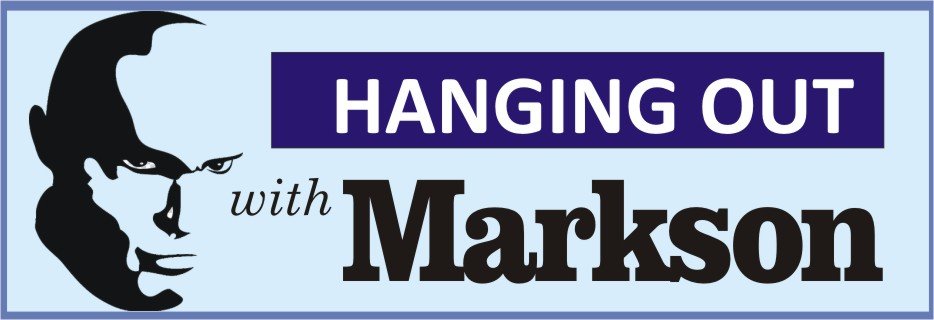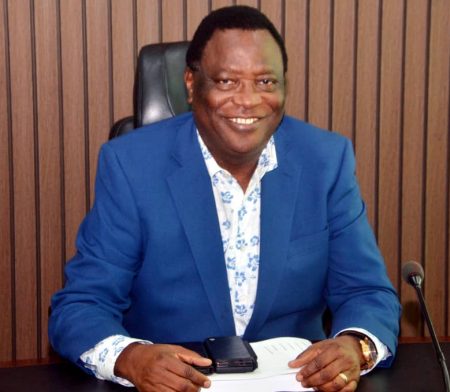 Port Harcourt — Two prominent sons of Bayelsa State – Governor Douye Diri, and the Minister of State for Petroleum Resources, Chief Timipre Sylva, made a good show of unity when they shared the same podium at a town hall meeting with stakeholders in Yenagoa last week. The PDP and APC stalwarts differed on the desirability of continuing agitations in the Niger Delta. Sylva, who served as Governor of Bayelsa State (May 29, 2007 – April 16, 2008 and May 27, 2008 – January 27, 2012,) said, “The time for agitation has since gone as you all know and can see. Why I say that is that we agitated in this country; we quarreled, a lot of blood was spilled in the Niger Delta, and in the process, we were given a lot of opportunities – the NDDC, 13 per cent (derivation), the amnesty programme, until we were even given the Presidency of Nigeria. That means the yam and the knife were handed over to us.”
Port Harcourt — Two prominent sons of Bayelsa State – Governor Douye Diri, and the Minister of State for Petroleum Resources, Chief Timipre Sylva, made a good show of unity when they shared the same podium at a town hall meeting with stakeholders in Yenagoa last week. The PDP and APC stalwarts differed on the desirability of continuing agitations in the Niger Delta. Sylva, who served as Governor of Bayelsa State (May 29, 2007 – April 16, 2008 and May 27, 2008 – January 27, 2012,) said, “The time for agitation has since gone as you all know and can see. Why I say that is that we agitated in this country; we quarreled, a lot of blood was spilled in the Niger Delta, and in the process, we were given a lot of opportunities – the NDDC, 13 per cent (derivation), the amnesty programme, until we were even given the Presidency of Nigeria. That means the yam and the knife were handed over to us.”
Governor Diri retorted, “Our right as Bayelsans to agitate, Hon. Minister, I beg to differ with you here. Today, the right to agitate is even more profound. The reason is that all of the demands of the Ijaw people, even as we speak today, are very far from being achieved; very, very far.” The newspaper headlines the following day tried to make capital out of the comments, but when you strip the exchanges of political posturing and newsroom frenzy, the two men were actually singing from the same hymn sheet. First, the fact that the two political rivals agreed to share the same platform is itself newsworthy. You will recall the roles each played in last year’s gubernatorial elections in Bayelsa State, which the APC won through their candidate, David Lyon. The man was rehearsing for his inauguration just 24 hours away, when the Supreme Court pulled the rug from under his feet and awarded the election to the PDP candidate. But with surprising grace and pragmatism, Sylva and Diri have continued to put up the appearance of walking together for the interest of their state, culminating in their participation at the town-hall which came as part of a nationwide drive for stakeholder consultation initiated by the Presidency.
Sylva’s comments on protests in the Niger Delta draw from the agitations of the 1990s which resulted in deaths, kidnapping and a drastic reduction in Nigeria’s oil and gas production. The Musa Yar’Adua administration announced an “unconditional amnesty” which was effective August 4, 2009 to October 4, 2009. Sylva said he played a key role in the amnesty process, claiming in an interview with the Financial Times in September 2010 that, he wrote the memo to the President in 1980. A lot of things happened, some led by the Federal Government and others outside human control. The Obasanjo administration had established the Niger Delta Development Commission (NDDC) in June 2000 to focus on the development of the region.
The highpoint in the political fortunes of the region was the election of Dr. Goodluck Jonathan, as Vice President in 2007, and President in 2010, when Mr. Yar’Adua died. This was what Sylva meant when he used the “yam and knife” analogy. Sylva understandably linked the election of an indigene of the Niger Delta to the highest office of the land with the agitations of the 1990s, and saw it as a good opportunity to redress the decades of wrongs which triggered the disturbances. In Sylva’s view, if that has not happened, the people of the Niger Delta should blame themselves and stop further agitations which will lead to nowhere. He is right. The violent protests of the 1990s have no place in the Niger Delta as they will further set back the development of the region.
This jives with the comments of Governor Diri who says the protests which should now transmute to the intellectual level. Simply put, the people of the Niger Delta should vigorously engage in the fight of ideas for the development of the resource-rich region. He is also right. The underdevelopment in the Niger Delta cannot be redressed in one fell swoop, even if, say, the entire federal budgets of the Jonathan presidency were solely dedicated to this purpose. There is therefore much outstanding work to be done in the region, and the kind of intellectual engagement canvassed by the governor is the right route.
The components of the intellectual engagement however, need to be defined if it will lead to the expected outcome. If, as Sylva contended, there has been a huge allocation of resources to the Niger Delta these years, the people of the region must begin to look inward and find out if the impact of investment has yielded commensurate change on the ground. Gone should be the days when we blame the northerner, westerner and easterner for our plight as if the southerner has been an innocent victim. While it is true that geo-political considerations have negatively impacted the Niger Delta, it will be self-defeating to blame “outsiders” for all the challenges the region faces. For example, since its creation, the NDDC has been headed and managed by Niger Delta indigenes. The position of Executive Chairman is rotated alphabetically within the nine oil producing states – Abia, Akwa Ibom, Bayelsa, Cross River, Delta, Edo, Imo, Ondo and Rivers. The intellectual engagement we have in mind should explain what has been done with the allocations of the NDDC.
The intellectual engagement should also be taken to our political leaders at the local government and state levels. What have they done with the resources allocated to the development of their communities and states every day? Where has all the money gone to? Who stole our billions? Who has impoverished his kith and kin, and turn around to shamelessly flaunt the loot as evidence of their ingenuity and industry? Diri and Sylva should be commended for helping to lay the foundation for a change of order in the Niger Delta. This will not come about by violence, but by a hard-nosed engagement of the hearts and minds of the people of the Niger Delta on the past, present and future of the long-suffering region.



